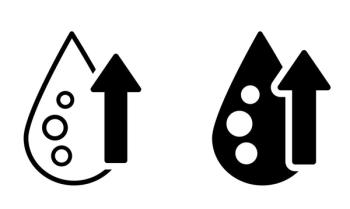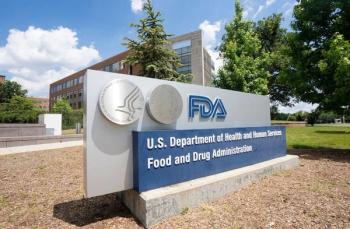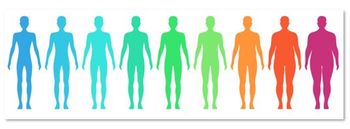
Garlic Gets Lipid Comeuppance
STANFORD, Calif. -- For six long months, scores of volunteers with elevated LDL levels wolfed down a daily sandwich spread with a blended raw clove of garlic, eagerly anticipating that when it was all over their lipid would be better. Alas, it did not happen.
STANFORD, Calif., Feb. 26 -- For six long months, scores of persistent volunteers wolfed down a daily sandwich spread with a blended raw clove of garlic, eagerly anticipating that when it was all over their lipid levels would be better. Alas, it did not happen.
In the largest trial so far of garlic's purported lipid-lowering benefits, neither raw garlic nor popular garlic supplements improved lipid levels compared with placebo, found Christopher D. Gardner, Ph.D., of the Stanford Prevention Research Center and Stanford Medical School, and colleagues.
No serious adverse events were reported and possibly related adverse events, such as rash, heartburn, and mouth ulcers, were rare. Bad breath and flatulence did not dissuade excellent adherence.
The study included 192 adults, ages 49 to 51, with moderately elevated LDLs (130 to 190 mg/dL), Dr. Gardner and colleagues reported in the Feb. 26 issue of the Archives of Internal Medicine.
They were randomized to placebo, one average sized clove of raw garlic, or the equivalent dose of a garlic supplement, either four Garlicin-brand powdered garlic tablets (twice the recommended dose) or six Kyolic-100-brand aged garlic tablets (1.5 to three times the recommended dose).
The raw garlic was blended with spread and put in sandwiches prepared at the research facility and picked up by participants twice a week. Groups that took real pills received placebo sandwiches and vice versa six days a week for six months. They got one day off a week from the garlic,
At six months, no significant benefit appeared in the garlic groups compared with placebo. For the primary outcome of LDLs, the six-month net changes among groups were:
- 0.4 mg/dL raw (95% confidence interval -5.5 to 6.4).
- 3.2 mg/dL powdered (95% CI -2.2 to 8.7).
- 0.2 mg/dL aged (95% CI -5.3 to 5.7).
- -3.9 mg/dL placebo (95% CI -9.0 to 1.2).
For HDLs, the net changes at six months were:
- 2.3 mg/dL raw (95% CI 0.4 to 4.2).
- 1.0 mg/dL powdered (95% CI -0.3 to 2.4).
- -0.3 mg/dL aged (95% CI -1.6 to 1.0).
- -0.8 mg/dL placebo (95% CI -3.2 to 1.6).
For triglycerides, the net changes at six months were:
- -5.2 mg/dL raw (95% CI -14.6 to 4.2).
- -6.6 mg/dL powdered (95% CI -19.9 to 6.7).
- -2.0 mg/dL aged (95% CI -18.2 to 14.1).
- 6.4 mg/dL placebo (95% CI -6.4 to 19.2).
For the total cholesterol to HDL cholesterol ratio, the six-month net changes were:
- -0.11 mg/dL raw (95% CI -0.26 to 0.03).
- -0.02 mg/dL powdered (95% CI -0.16 to 0.11).
- 0.0 mg/dL aged (95% CI -0.13 to 0.12).
- -0.04 mg/dL placebo (95% CI -0.15 to 0.08).
Significant benefit was likewise lacking among those in a subset with LDL cholesterol concentrations above the median. No short-term effects were observed with monthly blood testing for lipid levels.
However, bad body and breath odor plagued 28 participants (57%) in the raw garlic group and one in the aged garlic group. Persistent flatulence attributed to treatment was reported by three in the raw garlic group, four each in the powdered and aged garlic groups, and one in the placebo group.
Nonetheless, 87% to 90% of participants remained in all the treatment arms for the duration of the study. Adherence to tablets (91% to 94%) and sandwiches (96% to 97%) was good in all groups.
Dietary intake of saturated fat, fiber and calories as well as physical activity level and weight were similar between groups at randomization, at midstudy, and at the end of the study (all P?0.10).
The researchers said that including raw garlic as one of the treatment arms avoided potential confounding from issues with bioavailability of active ingredients from supplements. They also noted that the study was substantially larger than those that preceded it, and that the sample size was sufficient to detect even modest effects on cholesterol (80% power to detect 10-mg/dL difference).
So what is the take-home message? Dr. Gardner and colleagues cautioned against generalizing their results to other populations, such as those with higher cholesterol, or other health effects on fibrinolysis or atherosclerosis.
Regardless of what future studies show about other health effects of garlic, Dr. Gardner and colleagues said physicians should counsel patients against its use for lowering cholesterol.
"Based on our results and those of other recent trials, physicians can advise patients with moderately elevated LDL-C concentrations that garlic supplements or dietary garlic in reasonable doses are unlikely to produce lipid benefits," they concluded.
But in an editorial, Mary Charlson, M.D., and Marcus McFerren, Ph.D., M.D., both of the Center for Complementary and Integrative Medicine at Cornell University in New York said the study leaves open other avenues for garlic's putative cardiovascular effect.
Drs. Charlson and McFerren said that the lack of mention of whether overall dietary fat intake changed with time in any of the groups was a "potentially major omission" since all the patients had reason to trim fat from their diet.
"Garlic is one of the top-selling dietary supplements in the United States," they wrote. "Do they prevent cardiovascular disease? The jury is still out."
Newsletter
Enhance your clinical practice with the Patient Care newsletter, offering the latest evidence-based guidelines, diagnostic insights, and treatment strategies for primary care physicians.

































































































































